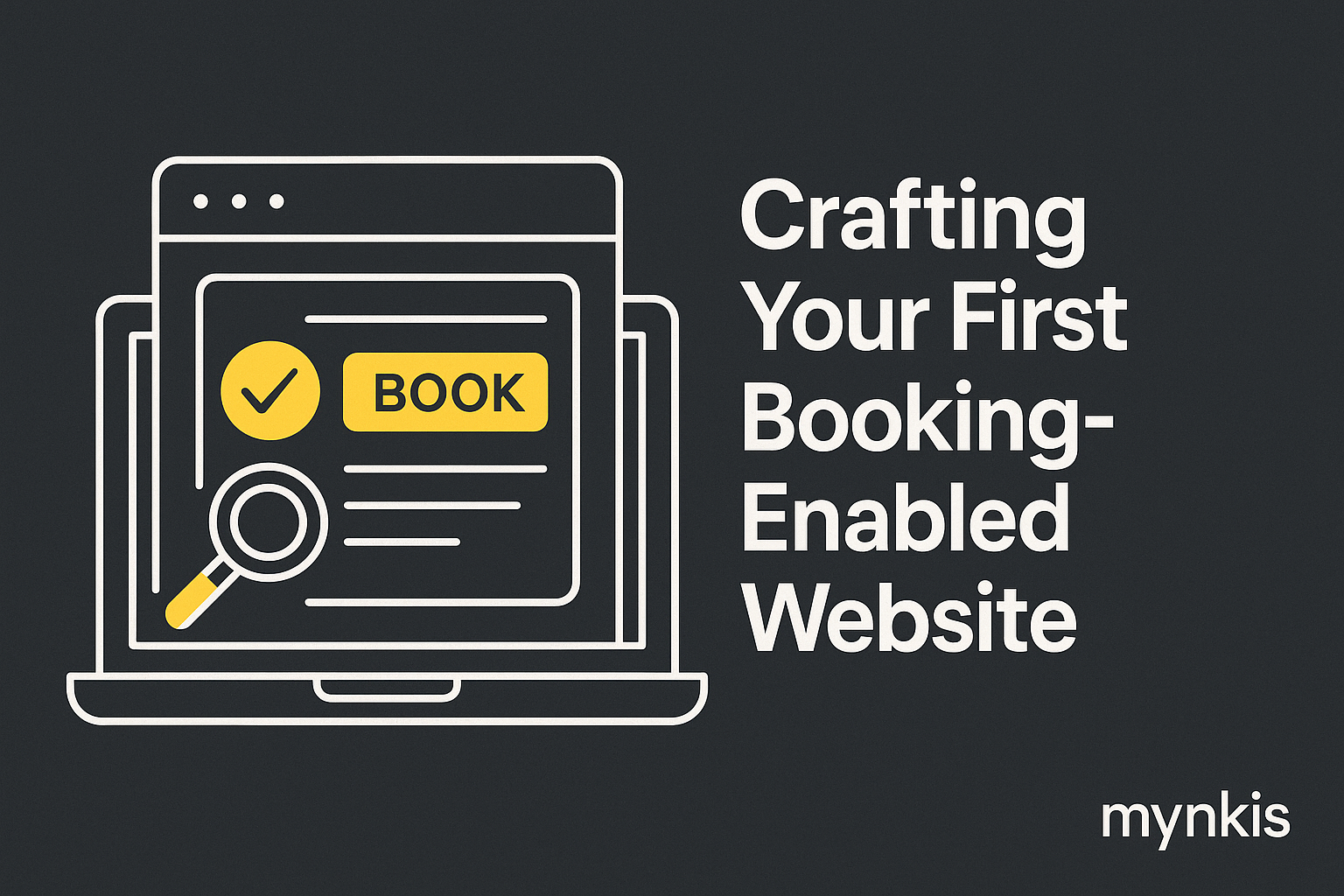Schedule a Demo
From my experience, helping various clients integrate booking functionality into their sites, I've seen firsthand how a well-designed booking system isn't just a convenience; it's vital for transforming user interest into definitive action. Your primary goal is to simplify the user's path to scheduling, ensuring the process is straightforward and intuitive. With customization at your fingertips, you can tailor your booking interface to reflect your brand's aesthetic, ensuring it isn't just functional but also engaging.
Here's the thing: great design gets users to your site, but good SEO keeps them coming back. When I advise on web projects, I focus on integrating relevant keywords like "custom software development" and "enterprise web solutions" naturally throughout the site's content, particularly within the page titles, meta descriptions, and headers. This not only improves your site's visibility in search engine results but also enhances user conversion rates as people often base their trust and decisions on the credibility of your web presence.
User-centric design is not a buzzword; it's a principle that, when correctly applied, dramatically increases user conversion. In the context of booking websites, a user-centric design should focus on minimizing friction at every step of the user journey. From swift page loading times to intuitive navigation and compelling call-to-action buttons, every detail matters. Remember, your site's layout and visual elements should guide the user effortlessly towards making a booking. After all, a confused user is likely a lost user.
I can't stress enough how crucial mobile optimization is. With internet usage now predominantly happening on smartphones, ensuring your booking website operates seamlessly on all devices isn't just advantageous; it's mandatory. Incorporate responsive design, ensuring texts are legible, buttons are clickable, and the booking process is as smooth on a mobile as on a desktop.
While striving for an aesthetically pleasing website is noble, maintaining the delicate balance between function and form is where the true art lies. When designing a booking platform, functionality can't be compromised for design's sake. Users need to complete their bookings efficiently, which demands clean layouts and clear navigational pathways. Simultaneously, the visual design needs to captivate and retain user attention, driving them toward conversion.
I've seen numerous projects succeed by strategically placing keywords like "custom software development" and "enterprise web solutions" across landing pages. It's not just about stuffing your content with keywords; it's about seamlessly integrating them into your narrative, ensuring they feel natural to readers while boosting your SEO performance. Enhancing your titles, URLs, and meta tags with these terms can significantly lift your search engine rankings.
Organizations like HubSpot and Google often provide valuable insights into web development trends. Drawing from their resources can inform your design choices and help tailor your website to meet current SEO standards. HubSpot's content on website optimization, for example, discusses leveraging social media and customer journey mapping to improve site efficacy. Based on available research, individual results may vary, but such information provides a strong starting point for your design journey.
Integrating customer testimonials and real-time booking statistics adds a level of trustworthiness to your website. In consultations, I recommend showcasing case studies or successful client bookings as social proof to visitors. Engaging content interspersed with true stories about satisfied users or businesses can transform skeptical browsers into loyal customers.
A lively, responsive user interface encourages users to explore, diminishing bounce rates while enhancing engagement. I've worked with platforms that utilized interactive elements like calendars and dynamic availability displays. Such features not only improve user experience but also signal to search engines like Google that your site provides value, thereby improving your "enterprise web solutions" ranking.
Beyond basic booking functions, adding features such as real-time notifications or integration with customer relationship management (CRM) systems can elevate your website's usability and appeal. Personally, I've integrated CRM functionalities for clients where booking directly feeds into their client management systems, streamlining operations and enhancing customer service.
Personalization is critical. Tailoring the booking experience by showing different content to returning users, suggesting similar services based on previous bookings, or even personalized greetings, can create a warm, welcoming digital environment. Data-driven personalization aids in turning casual visitors into frequent users.
The journey doesn't end when your website launches. Employing tools to gather analytics data enables you to refine your site continually. Web analytics can guide you in adjusting your "custom software development" approach, optimizing both for design impact and SEO performance. It's about keeping the user experience at the heart of your development and enhancement strategy.
I believe deeply in educational content as a complement to your booking platform. Blog posts detailing how to make the most out of your service or industry insights can nurture your audience, solidifying your brand's authority. Crafting content that relates to "enterprise web solutions" not only positions you as an industry leader but also draws organic traffic to your site.
A consistent loop of user feedback is invaluable. Encouraging your site visitors to leave their thoughts can inform you of potential areas for improvement while directly involving them in your design evolution. In my role, I've implemented user surveys post-booking that yielded insights leading to remarkable site enhancements. This iterative process leverages the most valuable resource you have - your audience - to improve both functionality and design.
Building trust with your users is the cornerstone of any website, especially those with complex functionalities like booking platforms. Transparency regarding your data policies, how bookings work, and what users can expect from your service fosters trust. Include FAQs, contact information, and clear cancellation policies to support a trusting user relationship. Where specialized technical support is required, I suggest making it easily accessible with detailed help sections or live support to maintain your website's reliability and user trust.
